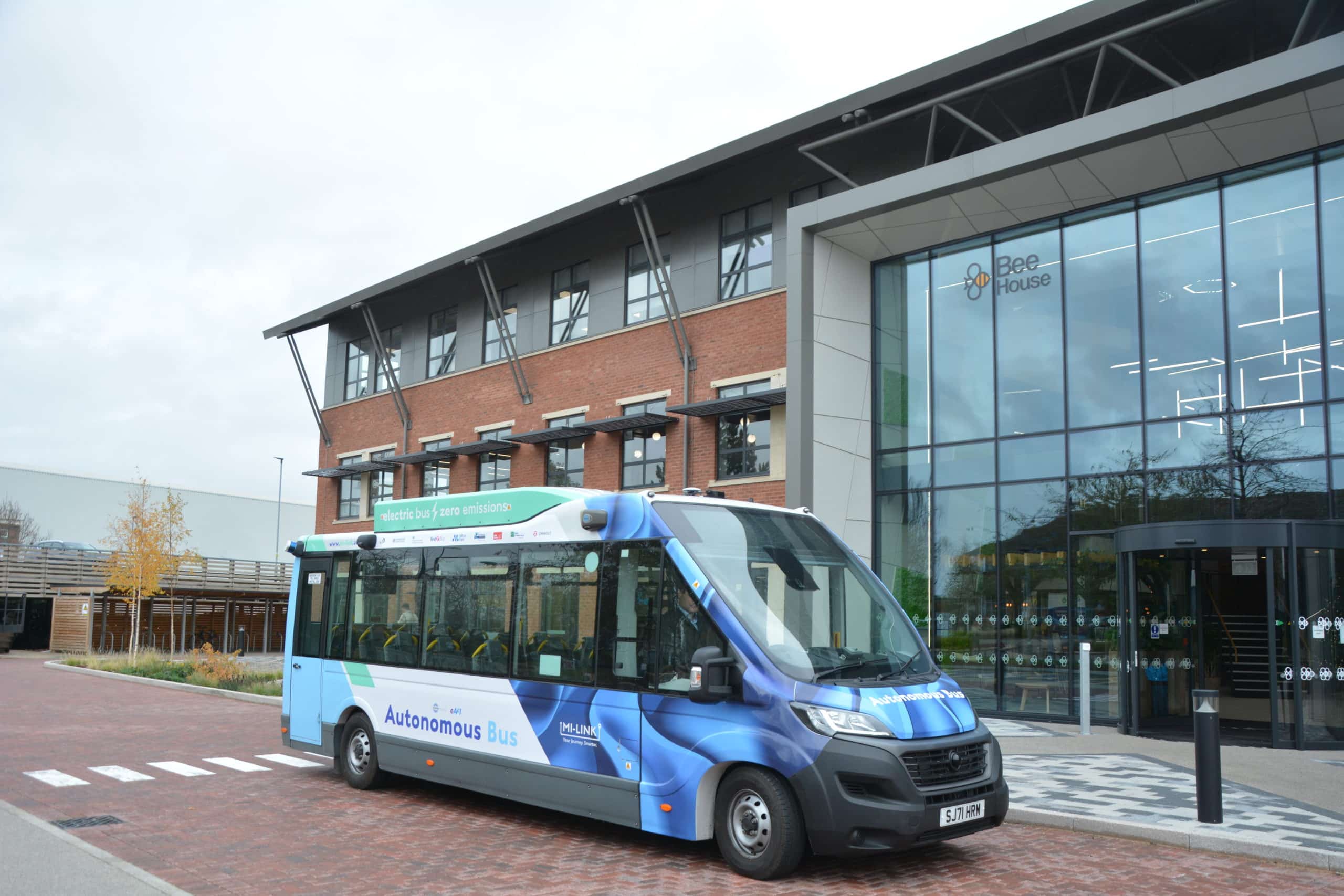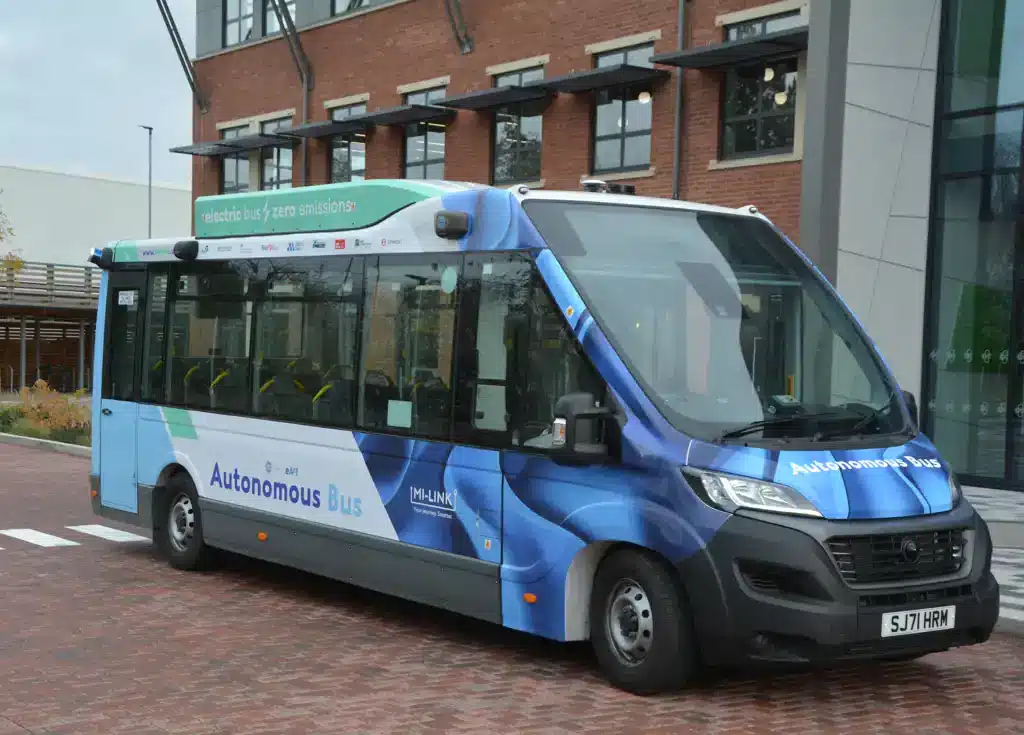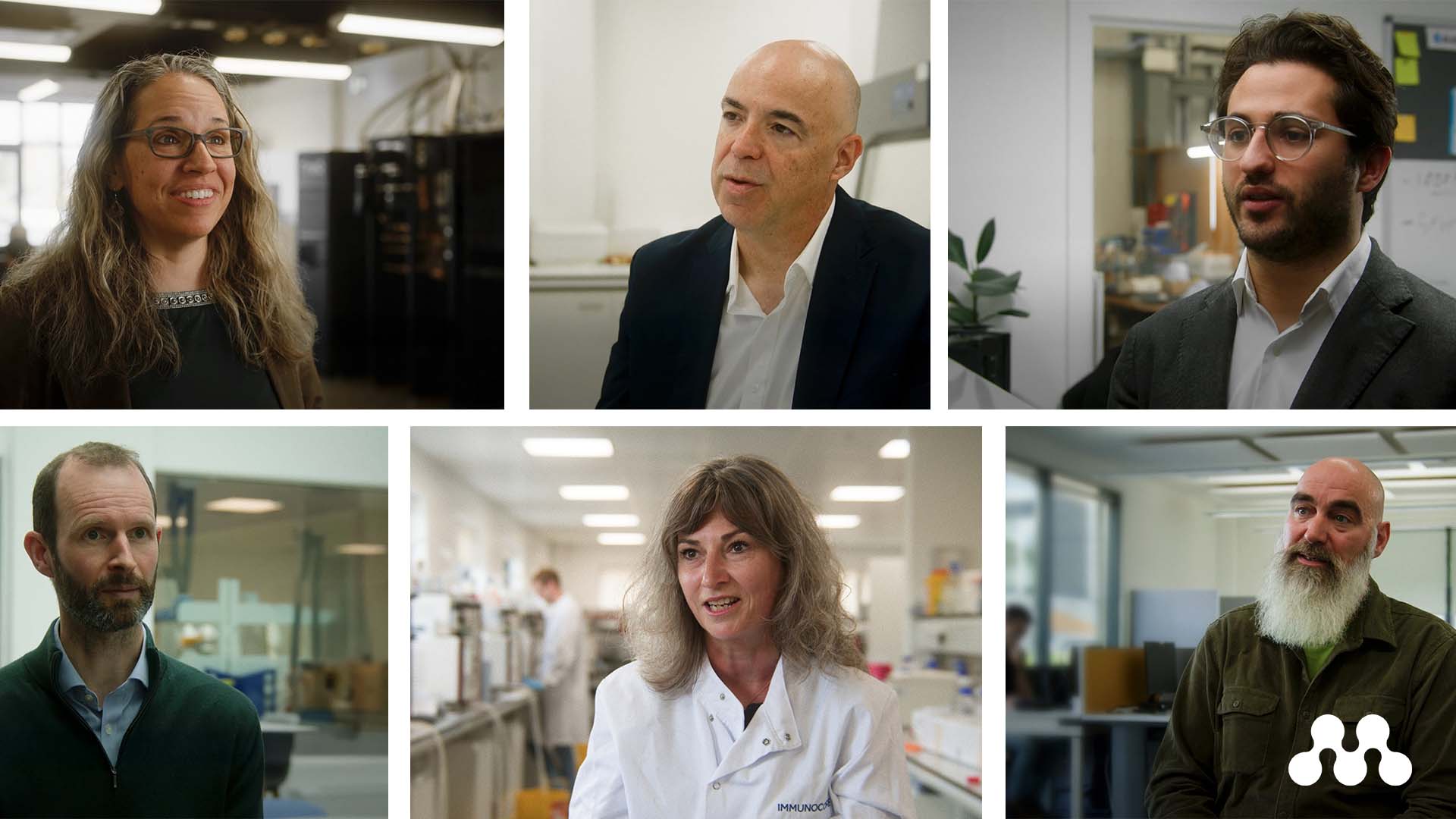The future of AV buses
Published on 26 April 2024

Can new tech like automation support a shift to more sustainable mobility and make bus travel more attractive?
During 2023 Milton Park was host to the UK’s first fully electric autonomous (AV) bus service trials. The trials featured an autonomous minibus initially on a circular route around Milton Park and then on a shuttle bus service route to Didcot Parkway station. The trials also tested a single decker bus on the station route. We would like to thank all those who took park in the trials research.
The research
A key question asked in the research component of the MultiCAV autonomous bus trials was, ‘how can new technology such as automation support a shift to more sustainable mobility and make bus travel more attractive?’ Over 1,000 Milton Park employees who took part in the trial, which has provided unique insights into the future of this emergent technology.
The Centre for Transport and Society (CTS) based at the University of the West of England in Bristol, was responsible for research to learn lessons from the application of the tech. Milton Park’s main role was to host the autonomous vehicle trials and the MultiCAV project – branded ‘Mi-Link’ – which also introduced electric bike sharing and an enhanced travel information system.
Via a series of surveys and interviews, the research by CTS engaged users of the MultiCAV services, as well as people working at Milton Park, who were seen as potential users. The ‘safety operators’ – professional bus drivers who oversaw the automated buses and drove them when necessary – gave feedback on their experiences, whilst partners in the project also reflected on their ‘learning journeys’.
Co-funded by Innovate UK and the Government’s Centre for Connected and Autonomous Vehicles, the trials were led by bus operator First Bus, supported by Nova Modus and in partnership with Milton Park and Oxfordshire County Council. The automation technology was provided by Fusion Processing and Zipabout provided the digital travel information integration.
Veronica Reynolds, Sustainability & Community Manager at Milton Park, said: “We are grateful to the MultiCAV project consortium for using the Park as a home for the trials, allowing it to become part of the history and future of AV buses. Thank you to all those who took part in the trials and took part in the survey.
“Milton Park is always keen to explore new partnerships and we will keep looking for opportunities to welcome emergent tech.”
The autonomous bus trials
The two bus services ran from spring to summer 2023 and were designed to feel like typical bus services, with route numbers, bus stops with printed timetables and information available online and in real-time. A few things made the services unusual: they were operated by electric minibuses, still quite rare in the UK at the time and passengers needed to be seated, wearing seatbelts. Fares were not charged, but most people travelling on the chosen routes, first within Milton Park, then later between Milton Park and Didcot railway station, already had prepaid bus passes.
Most Mi-Link passengers were regular, frequent bus users and found the services to be much like other bus services they travelled on. They found them to be quieter, likely because of the use of electric power.
An indicator panel was put in the bus so that passengers could see when it was being driven by the autonomous system and when the human safety operator was driving. For most typical manoeuvres users thought the autonomous system was driving as well or better than a human, though passengers still wanted there to be a human presence on the bus, to cope with the unexpected. This was shared by people working at Milton Park, who were positive towards using automated buses provided they would be staffed.
The safety operators had positive opinions about their training and experiences ‘co-piloting’ the bus, with confidence in the technology growing throughout the trial. An unexpected result was how the operators worked in partnership with the automated system to provide an optimal service to passengers. They recognised when the bus was driving more effectively than a human driver would be able to, but also knew when it was the right moment to take control to avoid over-cautious braking, or to negotiate a junction where risk-taking by human drivers is the norm.
What’s the future for autonomous buses?
The project identified a range of passenger benefits from autonomous driving technology which works in partnership with human drivers. The findings support the case for buses to be equipped with greater driver-assistance technologies, similar to the way that smaller vehicles like cars are evolving.
Lower operating costs and the resulting additional bus services and fare reductions will only be possible if buses do not need to be staffed. This can only take place if the need for intervention by safety operators is removed and the MultiCAV trial found the ecosystem around automated buses needs to evolve further before this is the case.
The roads on which automated buses operate are likely to need more standardisation, with additional maintenance and things like temporary road works would need to be managed in different ways. There would also have to be a reliable solution for travellers with additional needs and greater public confidence when travelling on unstaffed buses.
In the meantime, fully autonomous buses may be able to operate where it is possible to provide bus-only roads, perhaps in new residential or commercial developments where the land can be set aside.
Passenger assistance for those with additional needs could be pre-bookable in advance, as is the case on the railways. If it is not possible to provide a bus-only road for the whole route, then the service may have an automated section and a human-driven section, so that operating cost savings are made at least for part of the route.




